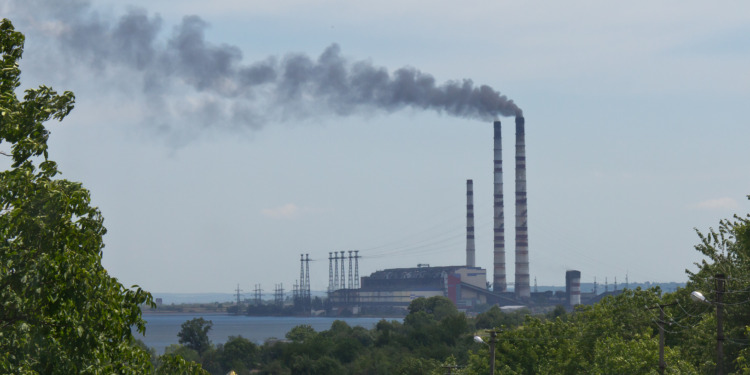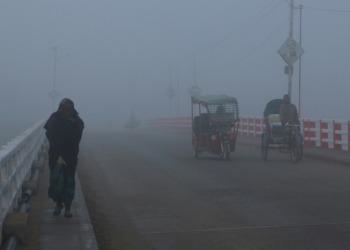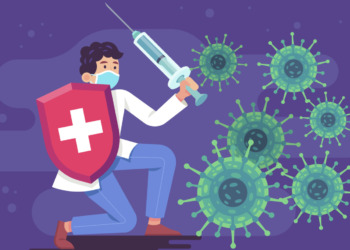The European Union (EU) Parliament has voted on rules to limit air pollution by 2035. But many, including the World Health Organisation (WHO), say the measures do not go far enough and are still not aligned with WHO air quality guidelines.
The air pollution levels present in and the quality of the air we breathe have long been a concern for health experts and environmentalists. The World Health Organisation put the problem succinctly, noting that:
“Almost the entire global population (99%) breathes air that exceeds WHO air quality limits and threatens their health”
Air pollution kills. According to WHO data, household air pollution was responsible for an estimated 3.2 million deaths per year in 2020, including over 237,000 deaths of children under the age of 5. The combined effects of ambient air pollution and household air pollution are associated with 6.7 million premature deaths annually.
A proposal to limit the levels of dangerous substances present in the air in Europe following WHO air quality guidelines, was voted on Wednesday by the European Parliament and passed with 363 votes in favour to 226 votes against: A good majority although not good enough.
As a result of a backlash from the European People’s Party Group (EPP), a centre–right group that is the largest group of elected officials in the European Parliament, the implementation of these measures to limit air pollution will be pushed back from 2030 to 2035.
The EPP cites concerns related to transport and industry for its position on air pollution rules. As Peter Liese, a German MEP and the EPP’s environmental spokesperson, said: “With this vote, there is a new risk of driving bans and even the closure of construction sites and industrial plants.”
What are the new measures to limit air pollution in Europe?
The measures are specifically to control fine but dangerous particles in the air termed PM2.5, also known as fine particulate matter. Fine particulate matter can pass into the bloodstream, spreading through the body and damaging organs. PM2.5 is emitted from a variety of sources, including combustion processes, industrial activities and transportation. PM2.5 can also be formed from the reaction of other pollutants in the atmosphere.
It has been estimated that air pollution causes 300,000 premature deaths in Europe each year. The WHO has set guidelines for exposure in the environment — the average concentration of PM2.5 should not exceed 10 micrograms per cubic metre. However, currently, many cities around the world and in Europe exceed these limits by worrying amounts.
Related Articles: There’s No Safe Level of Air Pollution | How Air Pollution Could Be Affecting Antibiotic Resistance | Air Pollution in Europe: Exposure Kills 1,200 Children Every Year
Despite the five-year pushback in Europe, many concerned with the environment and its air quality are welcoming the vote as a big step forward for a cleaner, healthier environment with less air pollution that can help reduce healthcare costs by the government due to a reduction in respiratory illnesses and related issues, and the premature deaths that they cause.
As Zorana Jovanovic Andersen, an epidemiologist at the University of Copenhagen and chair of the European Respiratory Society’s environment and health committee, put it:
“This is great news for all European citizens, especially the millions who live with lung conditions such as asthma and chronic obstructive pulmonary disease.”
Do the measures go far enough?
However, it could be argued that the measures to limit air pollution do not go far enough — although European air quality is markedly better than other areas. India, for example, has cities such as New Delhi with average PM2.5 values as high as 100 micrograms per cubic metre.
The new air quality regulations would allow for an annual average concentration of 10 micrograms per cubic metre, whereas the World Health Organization recommends emissions should be limited to five micrograms to limit fine particles exposure.
The date of 2035 rather than the initially proposed date of 2030 and this amount allowed has prompted many to worry that the measures are not going far enough to fight the dangers of air pollution and diseases that cause premature deaths, and to provide clean air needed for better health policy.
A Deutsche Welle (DW) report details the seriousness of the situation concerning air pollutants and emissions and air quality:
“We found that in 2022, almost everyone in Europe — 98% of people — lived in areas where the concentration of fine particulate matter, commonly abbreviated as PM 2.5, was over the limit set by the WHO.”
Many in charge of the proposal feel that the issue of air pollution is not being taken seriously enough. As Javi López, a Spanish MEP, said:
“We are facing, with air pollution, a slow-motion pandemic. The administration should fight against air pollution like we were fighting against the pandemic.”
The future
Despite these concerns, it does seem that the EU Parliament vote reflects a clear move on the part of those in power to move towards a Europe with cleaner air, and to reach new air pollution targets regarding ambient air quality.
Public awareness, which often leads to big changes being made, seems to be shifting too. According to a 2022 Eurobarometer survey, respiratory diseases caused by air pollution are seen by a majority of Europeans as a serious problem. While many participants said they felt they were not sufficiently informed about what was required for good air quality, most of those who were aware of the problem thought , air quality rules should be strengthened.
With both public awareness and changes being made by those in power, there is surely hope for a future of cleaner and decreased air pollution in the European Union, a pollution vision that matches health targets and is better in general for the environment, and where no one loses their lives to air pollution.
Editor’s Note: The opinions expressed here by the authors are their own, not those of Impakter.com — In the Feature Photo: Power plant Burshtyn TES, Ukraine, July 19, 2012. Featured Photo Credit: Wikimedia Commons.










